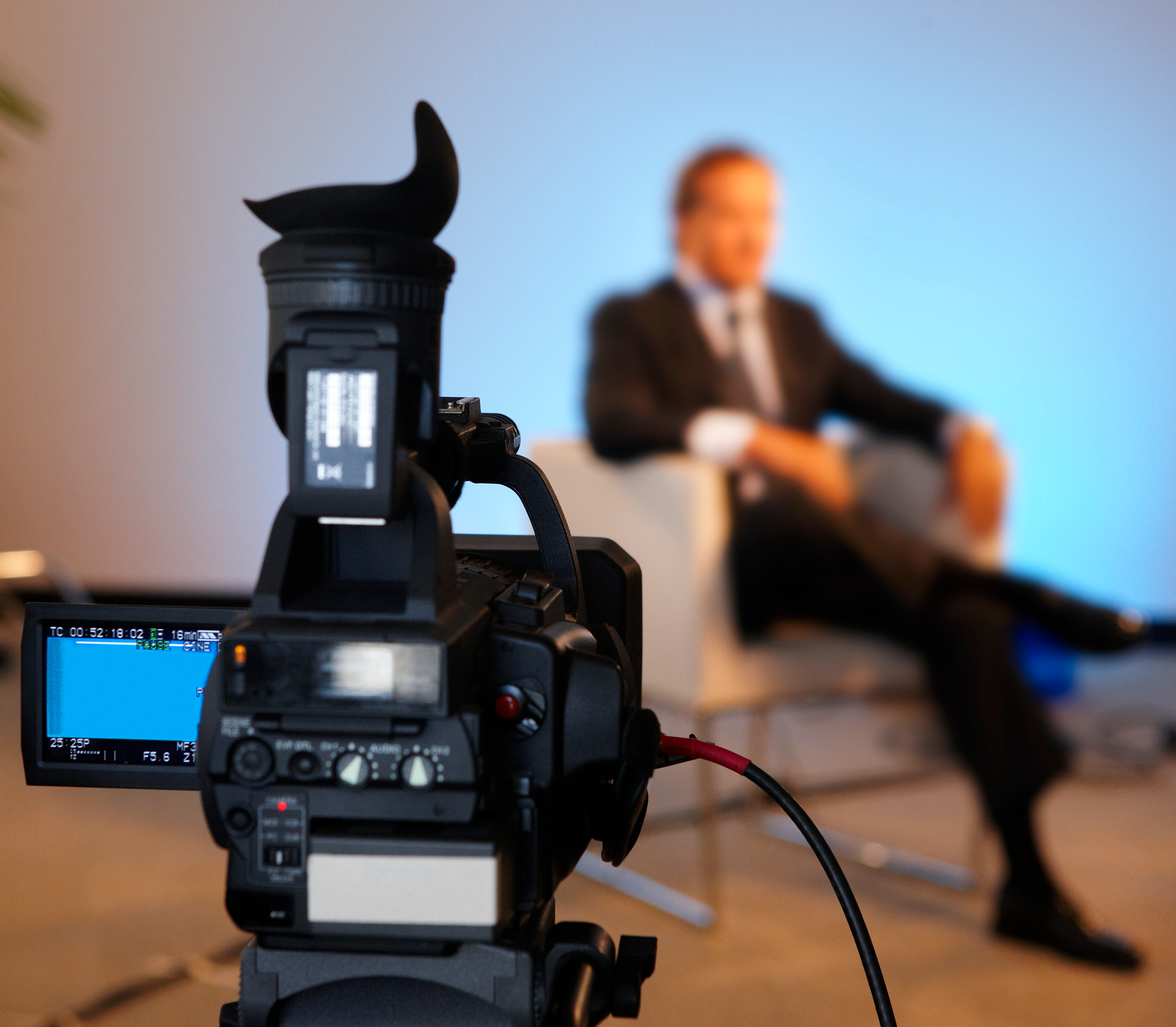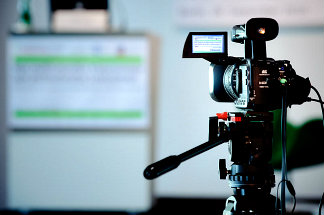The Relevance of Legal Video Clip Depositions in Modern Legal Providers: What You Should Know
Lawful video depositions have become important in today's legal landscape. They provide a multidimensional view of witness testimonies that typical records merely can not match. By catching both non-verbal and verbal interaction, these depositions improve the total understanding of a witness's trustworthiness. However, the performance of video depositions pivots on various aspects, including conformity with lawful requirements and best techniques (legal video depositions). Exploring these components discloses their real relevance in modern-day legal services
What Are Legal Video Depositions?
Lawful video clip depositions offer as a vital tool in the litigation process. They entail tape-recording witness testaments in a video format, recording both verbal and non-verbal interaction. This method enables lawyers to document the temperament, expressions, and reactions of witnesses, giving a richer context for the testimony. Typically carried out in a controlled setting, these depositions are led by attorneys who ask questions while a stenotype reporter documents the dialogue. The resulting video can be crucial for test prep work, as it enables lawyers to assess the reliability of witnesses and fine-tune their techniques. Additionally, lawful video depositions can be made use of in various lawful contexts, ranging from civil disputes to criminal cases. The acoustic and aesthetic elements of video clip depositions improve the discussion of evidence, making it a vital component in the contemporary lawful landscape. On the whole, they add significantly to the performance and efficiency of lawful proceedings.

Advantages of Video Depositions Over Conventional Techniques
Video depositions supply numerous benefits compared to conventional methods of taking witness testaments. One considerable benefit is the capability to catch both aesthetic and audio aspects, providing a more thorough document of the witness's statements. This twin layout improves clarity and permits attorneys to reference certain subtleties during test preparation. Furthermore, video clip depositions facilitate remote participation, making it much easier for witnesses who may be inaccessible for in-person appearances due to geographical constraints or health and wellness issues.Moreover, video depositions can expedite the general deposition process, reducing the moment and costs associated with travel and logistics. They likewise improve availability, as videotaped depositions can be conveniently shared amongst legal teams and referenced any time. This ease adds to better case administration and preparation. Overall, video depositions stand for a modern-day, effective approach to collecting witness testimonies, aligning with the developing requirements of the legal profession.
The Duty of Body Movement and Tone in Testimonies

In lawful video clip depositions, body movement and tone play crucial functions in conveying a witness's reputation and reliability. Nonverbal cues can provide insights into a witness's psychological state, influencing exactly how their testament is perceived. Comprehending the effect of these components is important for lawyers and jurors alike when assessing the reliability of a testament.
Nonverbal Interaction Insights
While spoken interaction is frequently highlighted in legal statements, nonverbal signs such as body movement and tone play an essential role in sharing integrity and feeling. Onlookers of depositions might note that a witness's stance, gestures, and faces can significantly affect assumptions of integrity. Consistent eye contact may signal self-confidence, while preventing stare could suggest deceit or discomfort. The tone of voice-- its volume, pitch, and pace-- can present sensations of sincerity or uncertainty. Attorneys should be in harmony with these nonverbal signals, as they typically provide essential context that enhances spoken words. Recognizing these nuances can enhance the effectiveness of depositions and influence the end result of legal process.
Psychological Tone Influence
The psychological tone conveyed during legal statements considerably impacts exactly how a witness is perceived. Body movement, vocal inflections, and faces play essential duties in shaping the story of a statement. A witness displaying self-confidence via steady eye call and a calm tone can instill a feeling of reliability and interaction. On the other hand, signs of stress and anxiety, such as fidgeting or an unsteady voice, may bring about uncertainty regarding their account. The subtleties of psychological expression can affect the interpretation of facts, making it crucial for lawyers to acknowledge these cues. In video clip depositions, the aesthetic and auditory components combine, stressing the significance of emotional tone in conveying genuineness and reliability within the legal procedure.
Credibility and Credibility
A vital aspect in developing integrity and trustworthiness throughout testimonies lies in the witness's body movement and tone of voice. Observers commonly count on non-verbal hints-- such as eye call, posture, and motions-- to evaluate a witness's genuineness. A witness that maintains eye call and displays open body language might be regarded as more honest and reliable than one that prevents eye call or shows up closed off. Additionally, tone of voice plays an essential function; a constant, tranquil tone can enhance the reliability of the testimony, while fluctuations in pitch or volume might increase doubts. Inevitably, the combination of body language and vocal tone considerably influences just how a witness's statements are received and translated in a legal context.
Best Practices for Carrying Out Video Clip Depositions
Carrying out video clip depositions calls for mindful planning and execution to assure a efficient and clear discussion of testimony. First, it is very important to choose a silent, well-lit place to minimize interruptions and safe and secure ideal video top quality. The equipment needs to be tested ahead of time, including cameras, microphones, and illumination, to prevent technical concerns during the deposition.Next, parties included have to examine the style and procedures ahead of time, making certain that everyone recognizes their duties. The deponent should be informed on the process, consisting of exactly how to react plainly and concisely.Additionally, preserving a professional temperament throughout the session is necessary. This consists of abstaining from talking over each other and verifying that all concerns are routed properly. Ultimately, it is important to tape the deposition in a layout that enables easy playback and review, preserving the stability of the testament for future usage.
Lawful Factors To Consider and Conformity Issues
Exactly how do legal considerations and conformity concerns affect the efficiency of video clip depositions? Lawyers must browse a complicated landscape of regulations, guaranteeing that video clip depositions abide by administrative policies and requirements. Compliance with laws concerning personal privacy, authorization, and recording techniques is necessary. Getting specific approval from all events included is essential to stay clear of lawful repercussions.Additionally, the admissibility of video evidence in court can hinge on compliance with step-by-step demands. Making sure that the tools utilized satisfies technological criteria is additionally crucial, as low quality can weaken the deposition's reliability.Moreover, lawyers should be aware of any kind of click this link details state regulations that this contact form govern video depositions, as these can differ substantially. Failure to attend to these factors to consider can not just jeopardize the stability of the deposition but likewise influence the general instance method, ultimately affecting the customer's legal outcomes.
How Video Depositions Effect Court Perception
While video depositions can act as powerful devices in legal procedures, their influence on court assumption is considerable. The aesthetic and acoustic components of video clip recordings give jurors with a much more detailed understanding of witness behavior, reputation, and emotional actions. This multimedia technique can improve the jurors' capability to examine the reliability of statement compared to standard text-based transcripts.Moreover, video depositions permit jurors to observe body language, tone of voice, and face expressions, all of which can influence their interpretation of the witness's statements. The visibility of a witness on screen can humanize them, cultivating compassion and link, which may sway jurors' point of views. On the other hand, a witness who shows up evasive or unreliable on video clip might result in unfavorable understandings that influence a jury's decision. Inevitably, the dynamic nature of video depositions plays a crucial function in forming just how jurors interpret evidence and reach their judgments.
The Future of Video Depositions in Legal Method
As innovations in technology remain to improve the legal landscape, the future of video depositions is poised for substantial advancement. Advancements such as man-made knowledge, digital fact, and improved video clip conferencing devices are anticipated to enhance the deposition procedure and enhance ease of access. Attorneys may utilize AI-driven analytics to analyze witness reliability and case toughness much more effectively.Moreover, the combination of digital truth might permit courts to experience immersive simulations of depositions, supplying much deeper context and understanding. Furthermore, the fad toward remote depositions is likely to continue, using better adaptability for customers and attorneys alike.As remote job ends up being progressively stabilized, video depositions will likely become basic practice, lowering costs and time constraints connected with traditional approaches. In general, these technical improvements assure to enhance the performance, effectiveness, and ease of access of video clip depositions in lawful technique, eventually changing exactly how lawyers get ready for test.
Frequently Asked Questions
Just How Much Do Legal Video Depositions Commonly Expense?

Can Video Depositions Be Used in Any Type Of Kind Of Case?
Video depositions can be used in different sorts of cases, consisting of civil, criminal, and family legislation. Their adaptability permits lawyers to existing witness testaments efficiently, adjusting to the specific needs of different lawful scenarios.
What Equipment Is Needed for a Video Deposition?
To carry out a video check out here deposition, crucial tools consists of a high-grade cam, microphone, illumination, and a trusted recording device. In addition, a computer system with editing and enhancing software may be needed for post-production and formatting the final video clip.
The length of time Does a Normal Video Deposition Last?
A normal video clip deposition lasts between 2 to four hours, depending upon the complexity of the situation and the number of concerns postured. Prolonged sessions may happen, but breaks are typically integrated for participant convenience.

Are Video Depositions Admissible in Court?
Video clip depositions are normally acceptable in court, offered they stick to legal standards and rules of proof. Their usage enhances clearness and preserves witness testimony, assisting in the judicial process throughout hearings and trials. Lawful video depositions have become necessary in today's legal landscape. Furthermore, lawful video depositions can be utilized in various lawful contexts, ranging from civil disagreements to criminal situations. Additionally, video clip depositions assist in remote engagement, making it much easier for witnesses who might be inaccessible for in-person appearances due to geographical constraints or health and wellness issues.Moreover, video clip depositions can speed up the general deposition procedure, reducing the time and prices connected with traveling and logistics. Making certain that the equipment utilized satisfies technological requirements is also essential, as bad top quality can weaken the deposition's reliability.Moreover, attorneys must be aware of any certain state regulations that govern video clip depositions, as these can differ significantly. Furthermore, the fad toward remote depositions is likely to continue, using greater flexibility for clients and attorneys alike.As remote work becomes significantly normalized, video clip depositions will likely become conventional method, lowering prices and time restraints linked with typical methods.